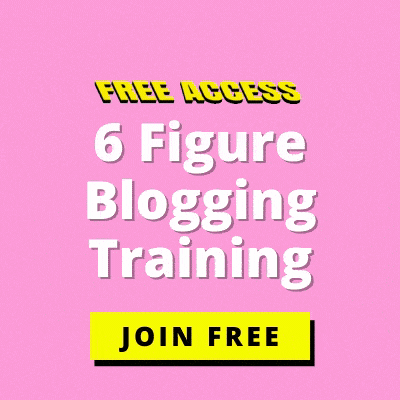When you’re in debt it can feel like paying that off is the only intelligent option, but sometimes when you do the math it may actually be smarter for you to start investing. This isn’t an easy decision and can really confuse a lot of people.
Depending on where you go for this information, you’ll get a different answer because everybody has different thoughts and opinions on debt and investing.
In this article, we are going to discuss the pros and cons of each as well as some important steps you need to take to change your finances in the mean time.
Table of Contents
You Need an Emergency Fund
Before you decide to pay off your debt or start investing, it’s time to get an emergency fund. This is extremely important because regardless of which path you decide to go on, you need to make sure you have a bit of money set aside just in case something goes wrong.
An emergency fund is a bank account where you have anywhere from $1,000 to as much as 6 months of expenses that you use in the event of a financial emergency.
You never know when something is going to go wrong, so you should have emergency money when paying off debt just in case you make too large a payment and then need money for something unexpected. You may also need emergency money if you start investing because you may lose large amounts of money without warning.
The One Investment You Should Always Choose
Before we get into the discussion between investing and paying off debt, there is one type of investment that I believe you should always participate in. This is a 401(k) Employer Match.
A 401(k) is an investment retirement account that you need to have and sometimes an employer will have part of their job benefits be that they are willing to do an employer match. This means that any money you put into this account will be matched by your employer up to a certain level.
It isn’t smart to ignore this employer match because you’re throwing away free money that you get from your job that will benefit you so much when you’re older. You should definitely take advantage of this if it’s available to you, even if you’re in debt.
The Most Important Factor
When thinking about the debate between paying off debt and investing, the most important thing to keep in mind is the interest rate on your debt. Why? Well, to really make this decision you’ need to compare the amount of money you’ll get from an investment to the amount of money you’re going to be paying toward interest on your debt.
An average interest rate that you’ll get from investments (depending on how you invest your money) is around 7%. This means that any debt that is at an interest rate higher than this should be paid off no matter what, because you won’t be earning money by investing instead of paying off the debt.
This means that essentially all credit card debt should be paid off before you start investing since most cards are going to be at 15% or higher. You can get away with keeping your car loan or mortgage because the rates are usually lower than investing interest rates.
How Do You Feel About Risk?
No matter what you’re doing with your money, you need to consider the risks associated with what you’re doing. If you’re young, you have so much more time to make the money to pay off your debts or to make a decent return on your investment.
If you’re super risk averse and will freak out every single time the market takes a small dip, you would definitely be better off paying off your debt first because the return is guaranteed and you’ll feel better about your choices. You’ll feel a lot better about the risk of investing when your debts are paid off and you no longer have a mortgage.
The Importance of Compound Interest
Compound interest is the biggest reason why so many people will start investing before they are debt free. It’s a great way to get your money to work for you, especially if you’re young. So, what is compound interest?
Compound interest is interest that is paid not only on the amount you’ve invested but also the interest you get on all interest you’ve already been paid. This means that you’ll get more money in interest every year that it’s invested.
This is a huge reason why it’s important to start investing when you’re in your 20s and not wait until you’re older. The amount of compound interest you can have if you start investing at 25 will be insane compared to if you wait until you’re 35.
The Debt-To-Income Ratio Factor
When making any decision you should really look at the math and see what you can actually afford to do. There are a number of important financial calculations to choose from but I find the best one to be your debt to income ratio.
This is a ratio that calculates your monthly payments that you have to make toward debt and compares it to your total monthly income after taxes.
For an example, if you make $5000 in a month, and you have a mortgage payment of $1250, a car payment of $300, a $400 student loan payment, and $300 of other random debts, your total debt payments for the month is $2,250. This means your debt-to-income ratio is at 45% which is not recommended!
You want your debt to income ratio to be somewhere under 35% for financial security!
If you’re in that kind of situation with a high debt-to-income ratio, you’ll want to pay off some of your debts before you start investing just to make sure you’re more secure.
Investment Returns are Never Guaranteed
The market is never going to provide you with a guaranteed return. You never know what is going to happen. However, chances are your home is going to be a guaranteed return if it’s in a good area and nothing catastrophic happens. If all goes well, you’ll get your investment back and usually a few thousand dollars in equity as well!
You need to remember that no matter what you’re going to have to pay down these debts. They aren’t going to just up and walk away (wouldn’t that be nice?)!
Which is Best For You?
There’s a really helpful calculator on Practical Money Skills Canada that can really help you to make this decision based entirely on math. This decision is entirely yours. You should never really take financial advice from a stranger on the internet (hehe, me). I’m just here to provide Y’all with the facts and let you make an awesome, informed decision that is right for you.
I’m always here to be open and honest with all of you. Personally, I started investing for the first time in January of 2018 and it scares me because I still have student loan debt and I really want to get rid of my debts before I invest any more money. Thankfully, I’ll be out of student loan debt by January 2019 which just makes me smile to think about! Then I’ll be an investing powerhouse.
A Balanced Option
A really great way to pay off your debt is to use the debt snowball method and this can actually twist itself into an interesting investment strategy. You can start by only paying off your debt and once a single debt is paid off you can move that minimum monthly payment toward investment and do this until all of your debts are paid off.
This will pay off your debt while also growing your investments in an organized and balanced way.
Final Thoughts
There is no right answer to this question to be honest. There are so many small factors that contribute to whether or not it’s a good idea or not, so take some time to organize your finances and really figure out what works best for you.




Leave a Reply